Life Lessons From Important American Authors
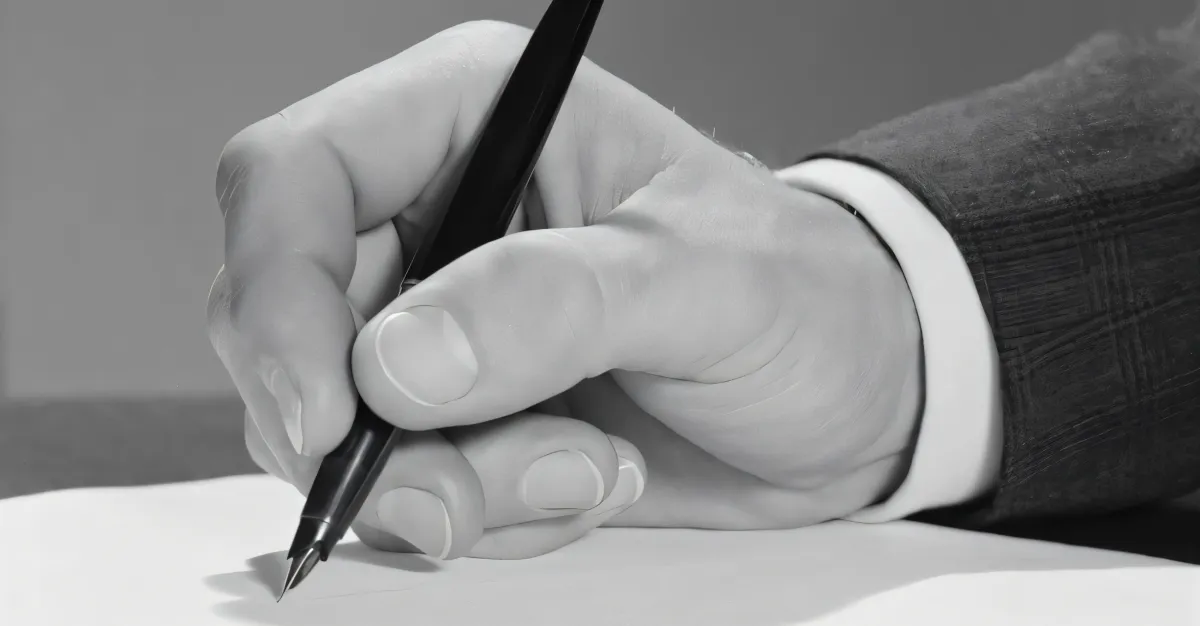
Writing well is an art. Art that shares experiences across time with some ink and some paper. Heck, sometimes you don’t even need paper. In fact, Abraham Lincoln, an exceptional writer, would write on boards when he had no paper to write on. However, what you do need is an idea. Some ideas endure the test of time and prove to be true, generations after they were conceived. The following authors had such ideas. These are philosophical truths that have echoed through time and are critical to understanding in the 21st century.
Here are five American authors whose everlasting words on life and craft can help you find order, purpose, and some wisdom as you navigate our rapidly changing world.
1. Henry David Thoreau - Find balance and minimize distractions
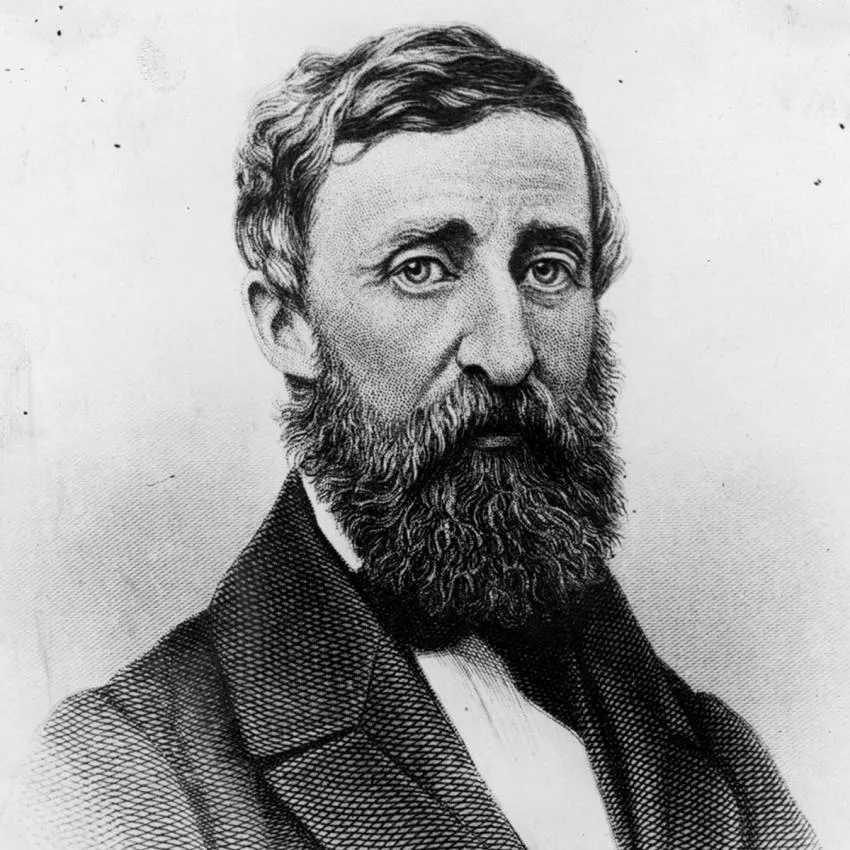
“I went to the woods because I wished to live deliberately, to front only the essential facts of life. And see if I could not learn what it had to teach and not, when I came to die, discover that I had not lived.” – Henry David Thoreau, Walden (1854)
There is a lot to unpack from Thoreau’s words. When he retreated to Walden Pond to live in isolation for two years, H.D.T wished to escape the fast pace of the industrialized world and return to a more intimate state with nature. He accomplished it, addressing the hardships of each day as they came, with no agenda and reducing life to its lowest terms.
What he learned he turned into his masterpiece, Walden (1854), and his conclusions can be applied to present-day ethical issues. He discovered that the comforts of civilization are a distraction to mankind and that people spend more time working than living. But not everything was a moment of ethereal clarity. Thoreau also experienced the hardships of the wilderness and came to appreciate modernity and the comfort it provided.
Thoreau came upon a truth that is at times forgotten in our unfocused world. Balance is the key. The world is too massive and perpetually unhinged, but you can achieve balance in your personal life. Like Thoreau, reduce your waste, minimize your possessions, and deliberate on what you think is really necessary.
Isolate yourself briefly and dedicate more time to what you love and your passions. Afterward, you will find what Thoreau did: that some things you can live with and others you can do without. You will realize you have not lived, but that it’s not too late to start.
Isolating yourself doesn't mean retreating to the woods, or to a secluded cabin, and reject modern society completely. If you want to and have the means to carry it out, go for it. However, it does mean taking a step back from the noise, the expectations, and the unimportant.
One way I do this is by boycotting social media. It is time-consuming and when the focus shifts from my projects, relationships, and tasks at hand to my phone screen, I know that I'm out of balance. Taking a day, week, or month from social media can help me bring balance back to my life.
2. Frederick Douglass - Education is crucial for progress
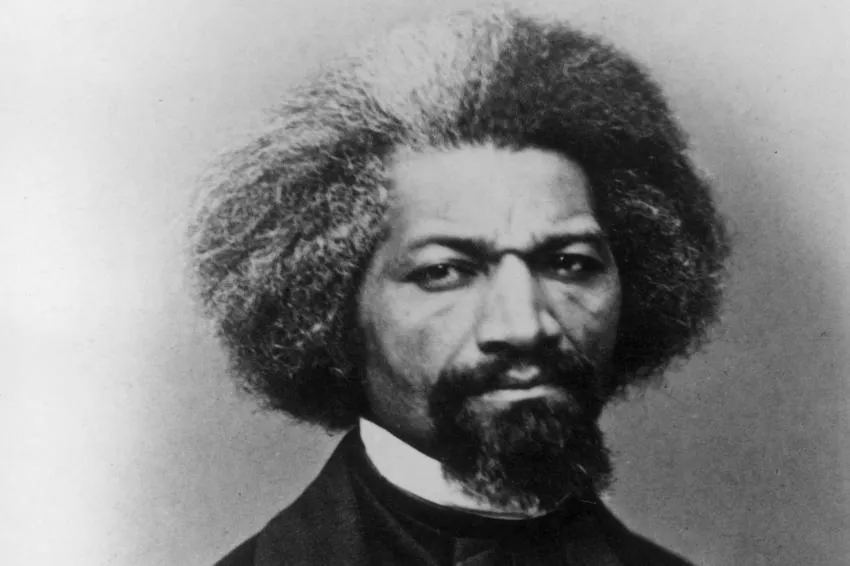
“Education…means emancipation...it means light and liberty. It means the uplifting of the soul of man into the glorious light of truth, the light only by which men can be free.” – Frederick Douglass, Speech to the Manassas Industrial School for Colored Youth (1894).
When he was a kid, Frederick Douglass was taught the alphabet, but not much else. However, that was enough to spark his curiosity and understand the importance of becoming a literate man. Against all odds, he taught himself how to read and write and, after slavery took the first 20 years of his life, he turned into a prolific essayist, orator, and speaker for the abolitionist movement.
Douglass succeeded without access to formal education, but his life was full of continuous learning and teaching. In fact, he made it his mission to educate other slaves by teaching them how to read by using the Bible. He also encouraged them to start reading books because doing so would “forever unfit him to be a slave” and would make him “unmanageable.”
What we can learn from Frederick Douglass is that knowledge is key and it means liberation. For many of us, our formal education lasts for a quarter of our lives if we attend college, much less if we don’t. In addition, our curriculums in school consist of vocational skills, marginalizing other important knowledge to be acquired such as the liberal arts.
I am a recent college graduate, but I feel like I have not stopped learning, months after graduating. That is because I love reading and writing, and both of these activities can teach you as much as any classroom. In addition, I try to read and write on a variety of topics, especially those that I am not familiar with.
Knowledge should not be reserved for landing a job, it should be considered as self-improvement and must be gained in a holistic way. It is not easy to continue applying yourself after college; there are more responsibilities such as the demands of a full-time job, or, perhaps, the raising of a young family. But like Frederick Douglass said, “If there is no struggle, there is no progress,” and we should never stop chasing progress.
3. Theodore Roosevelt - Do not shy away from a challenge
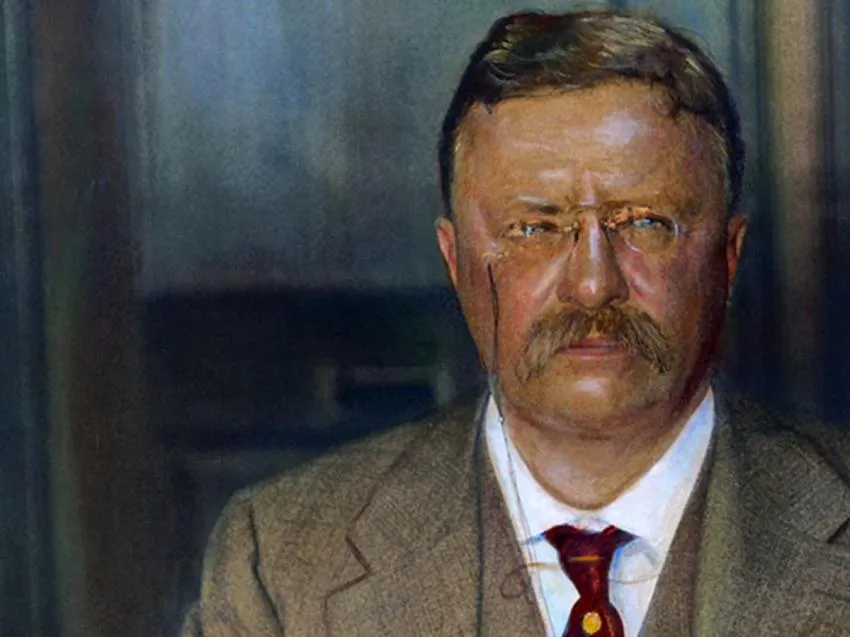
“Nothing in this world is worth having or worth doing unless it means effort, pain, difficulty.” – Theodore Roosevelt, American Ideals in Education (1910).
As the son of a wealthy New York family, Theodore Roosevelt had the means to live a comfortable, easy life. Moreover, he was very sickly as a boy and suffered from crippling illnesses. Certainly a recipe for an idle life. However, T.R. shed away the skin of that sickly boy to become one of the most adventurous, energetic, and brave men of his generation and possibly history. Let’s be honest, not many men have a resume as perilous as his.
Theodore was not only The 26th president of the United States, he was also a rancher, hunter, commissioner, amateur boxer, and prolific writer. He lived by his words; T.R. did not back away from the challenges that each of the posts he held provided, no matter how difficult or dangerous.
T.R's words relate to a rule I try to live by every day: action over inaction. I found myself saying, "Oh, I wish I had done that," more often than I wanted, and that is when I came up with the rule. I said, "from now on I will take action over inaction," and it's opened new possibilities for me, some of which have been difficult, but those have often come with the highest rewards.
Technology has brought many comforts, but it has also alienated us from experiencing life’s difficulties. With acclimated homes, soft lounging chairs, and unlimited entertainment, it is easy to become accustomed to comfort and indifferent towards life's challenges.
But going through difficulties could also be considered a blessing, not only because they make us grow, but because on the other side of conquering them, is glory. After all, Theodore Roosevelt said, “Never throughout history has a man who lived a life at ease left a name worth remembering.”
4. Ernest Hemingway - Whatever doesn't kill you, makes you stronger
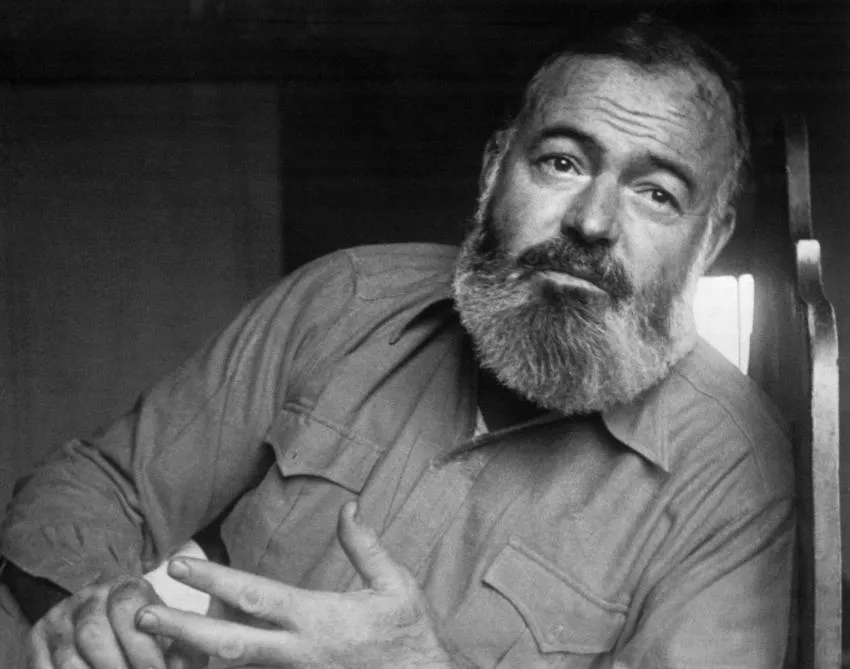
“The world breaks everyone, and afterward, many are strong at the broken places.” – Ernest Hemingway, A Farewell To Arms (1929).
Like Theodore Roosevelt, Ernest Hemingway was a man that belonged to nature; to the wilderness and the sea. His heart, however, belonged to the pen and paper; to words and stories that teach the world what it really means to be alive.
One of his truest teachings comes from “A Farewell to Arms,” where the characters explain what life brings to everyone who experiences it.
The world, while beautiful and joyous at times, was designed to bring the good, the gentle, and the brave to their knees at some point, but those who get up are always stronger. In other words, we all go through hardships that beat us close to our breaking points, but they make us stronger because we learn from them and because they show us a different side of life.
I have experienced misfortunes, just like everybody else, and some have made me a better person. Others feel like they will be present forever and have the power to weaken me at their will. However, reading and writing have helped me deal with these withering feelings whenever they appear because they are my passions.
Hemingway understood that struggle is part of life. He also knew that the most sensible form to share our struggles and learn about life was through writing and books. On books, he says, “there is no friend as loyal as a book.” And on writing he says, “write as long as you can live and there is pencil and paper or ink or any machine to do it with, or anything you care to write about, and you feel the fool, and you are the fool, to do it any other way.”
5. Emily Dickinson - Read as much as you can
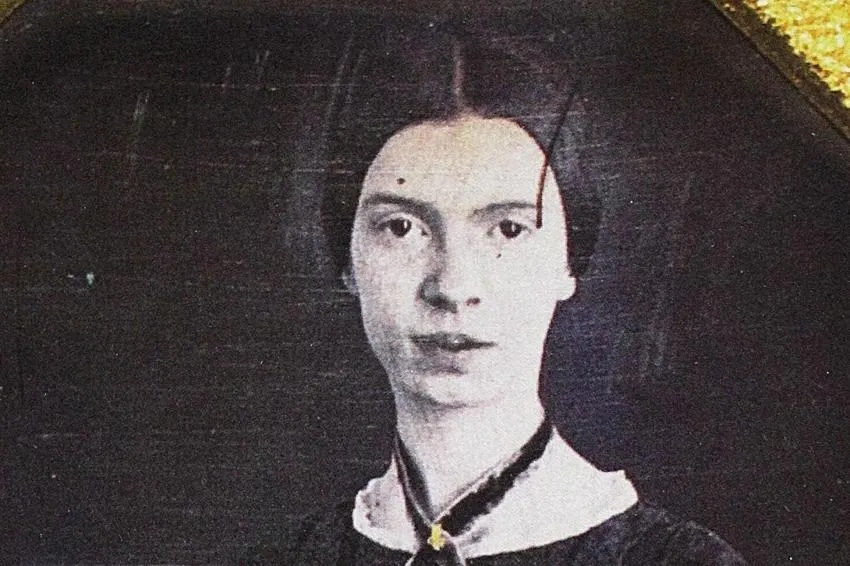
“The dearest ones of time, the strongest friends of the soul – BOOKS.” – Emily Dickinson.
Unlike the adventurous Theodore Roosevelt and Ernest Hemingway, Emily Dickinson preferred the seclusion of her parent’s home. Fortunately for us, her imagination ran wild and free inside the familiarity of her room, leading her to write her best work and come up with more than 1,700 poems.
Emily Dickinson’s life was not an easy one, but her passion for art, knowledge, and craft was evident and are admirable. Her craft was writing, and any good writer reads as many books as they can in their lifetimes. They devour them to escape the physical world as much as possible. Your craft may not be writing, but reading is an excellent habit that can open your mind to all kinds of possibilities.
There are books on any topic and you will be wise to read them all if you want to exercise your brain muscles. Also, books unleash your imagination and train your mind’s ability to recall information.
For me, there is no better way to learn something than from a good book. The fact that it is a published work makes me feel like the information inside is legitimate and thoroughly inspected. In addition, books are good companions to have while going through life's idle situations. For example, I read when I'm waiting for someone, when I'm dining alone, or when I'm bored.
Much can be learned from the poems of Emily Dickinson, but her life teaches us the biggest lessons of all: work on your craft, shut out distractions (perhaps not as drastically as her), and read, read, read.
The authors on this list are just a few from countless others in history.
However, these brilliant individuals wrote about existential truths that we should examine in order to judge our character and the way we lead our lives.
Learning about these essential human truths can help us avoid a lifetime of mistakes and regrets.
These authors are reaching out to us from the past to share their wisdom so that when we grow old, we don't realize we have not lived a meaningful life.
Opinions and Perspectives
Fascinating how they all emphasized the importance of continuous growth in different ways.
Really appreciate how the article tied historical perspectives to modern challenges.
The balance between isolation and engagement is something I struggle with daily.
Started reading more after this article. Already feeling the benefits Dickinson talked about.
Amazing how relevant these lessons still are despite being from such different times.
Wish the article had gone deeper into how these authors handled creative blocks.
The part about minimizing possessions spoke to me. Started decluttering and it's freeing.
Never thought about how Douglass teaching himself to read relates to self-directed learning today.
The emphasis on continuous learning is great but we need to acknowledge the barriers many people face.
Struggling with the balance between technology and disconnecting. These perspectives help though.
The article's point about books being loyal friends is so true. They're always there when you need them.
Been applying Roosevelt's philosophy about embracing challenges. It's tough but rewarding.
Always found it fascinating how Dickinson created so much while living such a secluded life.
The section about balance really resonates. I'm working on finding that sweet spot between ambition and contentment.
These authors show us that greatness comes in different forms. You don't have to be an extrovert like Roosevelt to make an impact.
I tried the social media boycott mentioned in the article. Lasted three days but it was eye-opening!
Interesting how they all emphasize different aspects of personal growth but they're all interconnected.
The focus on reading as a key to growth is spot on. I've started reading during my commute instead of scrolling.
Reading about Dickinson's dedication to her craft makes me want to be more serious about my own writing.
Love how practical these lessons are. They're not just philosophical ideas but actionable advice.
Important message about continuous learning, but let's be real, it's harder with full-time work and family commitments.
Wonder what these authors would think about our modern writing tools and publishing platforms.
Hemingway's quote about being broken and stronger really hits differently when you're going through tough times.
I've started reading more diverse authors lately, but these classical perspectives still offer valuable wisdom.
The article could have mentioned how these authors dealt with failure. That would've been valuable to learn about.
Anyone else feel a bit called out by the social media distraction part? I'm definitely guilty of that.
Thoreau's message about deliberate living has actually helped me save money. Started questioning every purchase I make.
The balance between isolation and connection feels especially relevant after recent global events.
Never thought about Lincoln writing on boards before. Makes me appreciate having a laptop to write on!
I find it remarkable how these authors managed to be so productive without modern technology. Makes our excuses seem pretty weak.
The idea of reducing life to its lowest terms is appealing but seems impractical in today's world. We can't all just walk away from our responsibilities.
This article made me realize I spend too much time consuming and not enough time creating.
Love how Douglass viewed education as more than just job training. We've lost that perspective in modern times.
Not sure I buy into the whole isolation thing. We need community more than ever in today's world.
The Hemingway section really touched me. Going through tough times right now and it helps to think about coming out stronger.
Completely agree about balance being key. I've started scheduling digital detox days and it's been revolutionary for my mental health.
Great insights but these authors all came from relatively privileged backgrounds except Douglass. Would love to see more diverse perspectives.
The section about T.R. taking action over inaction motivated me to finally start that project I've been putting off.
Interesting how all these authors emphasized personal growth in different ways. Makes me think about what I'm doing for my own development.
Emily Dickinson's dedication to reading is inspiring. I need to spend less time streaming shows and more time with books.
The article's point about continuous learning beyond formal education really speaks to me. I've learned more from reading widely after college than during it.
Anyone else find it ironic we're discussing Thoreau's ideas about minimizing distractions on what's probably a digital device?
These lessons seem timeless but I think they need modern context. Our challenges are different from what these authors faced.
The comparison between Dickinson and Roosevelt's different lifestyles is fascinating. Shows there's no one path to leaving a meaningful legacy.
I've tried Thoreau's minimalism approach and it actually helped me focus better at work. Didn't need to go live in the woods to get the benefits!
The part about Hemingway's view on hardships making us stronger feels a bit cliche to me. Not all suffering leads to growth.
Roosevelt's quote about nothing being worth having unless it requires effort really hit home. I've been avoiding some challenges lately and this was the wake-up call I needed.
True about Douglass, but I think the article understates how privileged we are today with access to education. His struggle was on a completely different level.
Frederick Douglass's perspective on education being liberation is so powerful. Makes me appreciate the opportunities I have to learn every day.
Really interesting article but I disagree about the social media boycott. We can find balance while staying connected. I've learned to set specific times for social media use instead of completely cutting it off.
I love how Thoreau's message about finding balance resonates even more strongly today. Sometimes I feel overwhelmed by technology and need to take those steps back to reconnect with what's really important.
